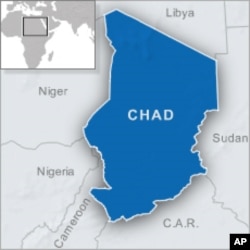Oxfam says severe flooding has cut off villages in Chad that have not received food rations for weeks.
Seasonal floods have cut off villages in Chad, leading to a spike in malnutrition among adults and children.
Oxfam says some villages have been waiting for emergency food rations for weeks, but access roads are impassable due to heavy rain and floods.
The aid agency says one in four children is suffering from severe malnutrition.
Oxfam's Charles Bambara recently returned from Chad.
"The roads now to some villages are completely cut because of the flooding. This is aggravating the humanitarian operation on the ground," he said.
Oxfam partnered with the humanitarian agency Action Against Hunger on a fact-finding mission in four regions of Chad.
Bambara said they found an acute nutritional crisis.
"We found that the malnutrition rate is very high even compared to Niger where the situation was already bad," he added.
Bambara said that 21 to 28 percent of the population is malnourished.
The World Health Organization defines an emergency situation by a malnutrition rate of 15 percent.
"In the Guera region, nutritionists told us that the malnutrition rate has tripled in the region compared to last year," he said.
Food distributions usually enter Chad from the port of Douala in neighboring Cameroon. But flooding has cut off part of that route.
Oxfam has started sending emergency rations to villages in the Mongo region of the country. The food packages contain cooking oil, grains, cereals, and salt.
Oxfam hopes to launch a program that will prevent a similar situation during next year's rainy season. But the people living in Chad's arid Mongo region say they are struggling to cope now.
"If it continues to rain beyond the end of September, it will be a disaster for them. The harvest will be completely lost," said Charles Bambara.
The rainy season is due to end this month. But if the rains continue to fall, villagers fear they will be cut off completely.




